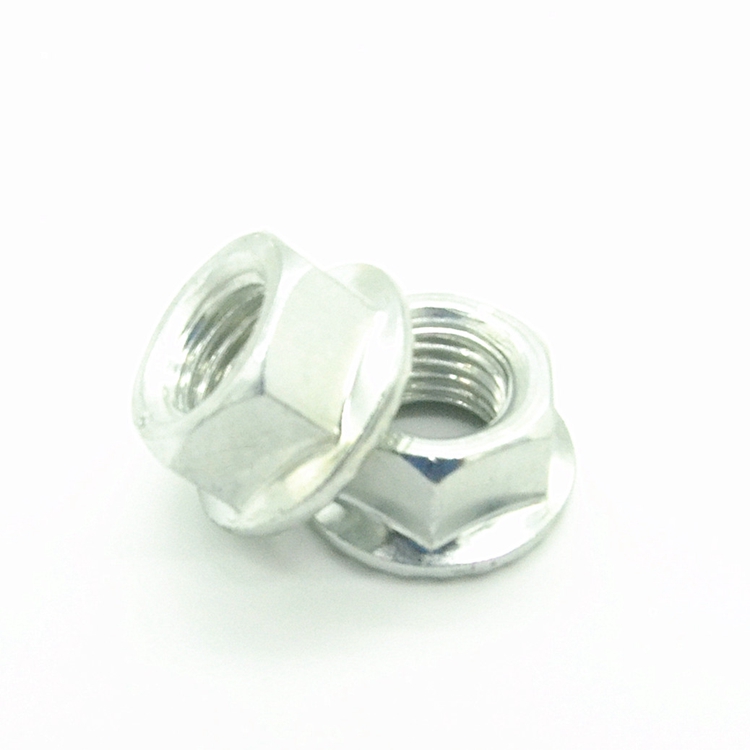OEM Zinc Plated Flat Washers for Durable and Reliable Fastening Solutions
Oct . 16, 2024 05:51 Back to list
OEM Zinc Plated Flat Washers for Durable and Reliable Fastening Solutions
Understanding OEM Zinc Plated Flat Washers Features, Applications, and Benefits
When it comes to fastening solutions in various industries, flat washers play a crucial role. Among these, OEM (Original Equipment Manufacturer) zinc plated flat washers have gained prominence due to their durability and adaptability. These components are essential for distributing loads, preventing damage to surfaces, and enhancing the overall performance of mechanical assemblies. This article delves into the features, applications, and benefits of OEM zinc plated flat washers.
What are Zinc Plated Flat Washers?
Zinc plated flat washers are thin, disc-shaped pieces of metal with a hole in the center, designed to be used with screws, bolts, and nuts. The zinc plating process involves applying a protective layer of zinc to the washer's surface to prevent corrosion and enhance durability. This is particularly important in environments where moisture and other corrosive elements are present. The OEM designation indicates that these washers are manufactured to meet specific standards and specifications, ensuring high quality and reliability in various applications.
Key Features
1. Corrosion Resistance The zinc plating acts as a barrier against environmental factors that can lead to rust and corrosion. This feature significantly extends the lifespan of the washers and the components they protect.
2. Load Distribution Flat washers are designed to distribute the load of a fastener over a larger surface area. This prevents damage to the surface being fastened and enhances the stability of the assembly.
3. Variety of Sizes OEM zinc plated flat washers come in various sizes and thicknesses, making them suitable for a wide range of applications. This versatility allows manufacturers to select the appropriate washer for their specific needs.
4. Enhanced Fastening By providing a smooth, flat surface for nuts and bolts to engage with, these washers help to ensure a secure and tight fastening, which is crucial in high-stress applications.
5. Cost-Effective Zinc plated flat washers are relatively inexpensive compared to other materials, making them an economical choice for manufacturers looking to maintain quality while keeping costs low.
Applications
oem zinc plated flat washer

OEM zinc plated flat washers are utilized in a broad spectrum of industries including automotive, construction, electronics, and machinery. Here are a few notable applications
- Automotive Industry These washers are commonly used in various automotive components, such as engines, chassis, and suspension systems, where strength and corrosion resistance are critical.
- Construction In construction, flat washers are crucial for securing bolts and screws in structures, ensuring that connections remain strong even under heavy loads.
- Electronics In electronics manufacturing, these washers are used to secure components on circuit boards and in assemblies, preventing loosening due to vibrations.
- Home Appliances OEM zinc plated flat washers are often used in the production of home appliances, providing reliable fastening solutions for different component parts.
Benefits of Using OEM Zinc Plated Flat Washers
- Quality Assurance By opting for OEM products, manufacturers can be assured of consistent quality and compliance with industry standards, which is vital for safety and reliability.
- Increased Longevity The corrosion-resistant properties of zinc plating significantly increase the longevity of the washers, reducing the frequency of replacements and maintenance.
- Improved Performance Using the right flat washer can enhance the overall performance of mechanical systems, ensuring that they function optimally without failure.
- Environmental Considerations Many OEM suppliers focus on eco-friendly manufacturing processes, contributing to sustainable practices while delivering high-quality products.
In summary, OEM zinc plated flat washers are integral components in various mechanical and structural applications. Their corrosion resistance, load distribution capabilities, and versatility, combined with the assurance of quality, make them indispensable in many industries. By understanding their features and applications, manufacturers can make informed decisions that enhance their product reliability and performance.
Latest news
-
High-Quality Panel Stud Bolt Reliable Panel Stud Bolt Factory & Suppliers
NewsJul.08,2025
-
High-Precision Fine Thread Locknuts Manufacturer & Supplier Custom Solutions
NewsJul.08,2025
-
PH Imperial Stud Bolt – High Strength Fasteners from Leading Supplier & Factory
NewsJul.07,2025
-
High-Quality Allen Wrench Bolts Leading Factory, Company & Suppliers
NewsJul.07,2025
-
Wholesale Ball Stud Bolt - High Quality Supplier & Factory Price Reliable Wholesale Ball Stud Bolt Company
NewsJul.06,2025
-
High-Strength Alloy Bolts Manufacturer & Supplier Quality Alloy Fasteners Factory
NewsJul.06,2025
